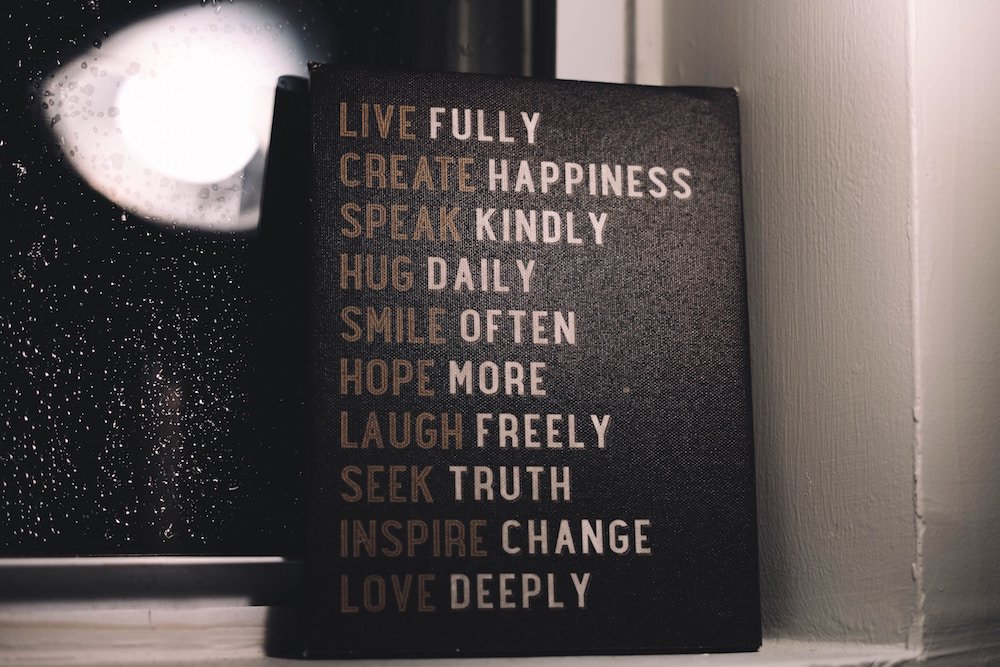 My latest On Nutrition column in The Seattle Times took aim at Weight Watchers’ targeting of teens (I discussed my personal experience as a teenage Weight Watchers member in my last blog post). My column also carried the broader message (which appears to have be overlooked by most readers who emailed me about the article), that wellness should be promoted for everyone, at every weight.
My latest On Nutrition column in The Seattle Times took aim at Weight Watchers’ targeting of teens (I discussed my personal experience as a teenage Weight Watchers member in my last blog post). My column also carried the broader message (which appears to have be overlooked by most readers who emailed me about the article), that wellness should be promoted for everyone, at every weight.
Currently, wellness is largely promoted for people whose bodies are deemed “too large.” That wellness unfortunately tends to take the form of food and exercise, while ignoring other aspects of health, as mentioned towards the end of the article. This is discriminatory on two fronts.
- One, that if you don’t fit in a culturally accepted weight range, that you better fix yourself.
- Two, that if you do fit in that weight range, then you’re fine. You don’t need to do anything else.
But weight is not synonymous with health, and despite “popular wisdom” or “common knowledge” that is is, the science does not back it up. Study after study has examined “associations” between weight and health, and yes, some of those studies do show an association between higher weight and poorer health outcomes, but an association doesn’t prove cause and effect. (Example: If people who drive red cars are more likely to have brown hair and less likely to have blond hair, then driving a red car is associated with having brown hair, but driving a red car doesn’t cause your hair to turn brown.)
Additionally, science cannot find what it’s not looking for. Most weight-and-health studies don’t factor in fitness levels (specific “cardiorespiratory” fitness, i.e. the kind of fitness you get from challenging your heart and lungs when you exercise). Those that do? They tend to find that higher weight doesn’t mean poorer health.
Even fewer studies factor in the effects of weight stigma, despite the fact that the health effects of stigma and discrimination are well known. (For more on these effects, see my article in the January issue of Today’s Dietitian magazine, with lots of research citations.)
Speaking of citations, one email suggested that I was not being evidence based, in my criticism of Weight Watchers, but the fact is that Weight Watchers is in fact a diet, and the evidence does show that dieting is a risk factor for both eating disorders and long-term weight gain. Additionally, one little known fact (I would call it a dirty secret) of “obesity” research is that the studies comparing the health outcomes of people who have always been heavy with people who have always been thin have not shown that the relatively few higher weight people who manage to lose weight and keep it off are healthier in the end than people who have a stable, albeit higher, weight.
This supports the idea of advocating for good self-care and letting the body figure things out for itself—a wellness, not weight, approach.
In a nutshell, even in cases where being thin might actually have a health benefit, do you get that same benefit if you force your body down to a lower weight? No one knows. There’s a lot of money in promoting obesity as a disease, and many scientists have bought into the Obesity Industrial Complex. There are several known flaws in mainstream obesity research, which the 2017 article, “Challenging assumptions in obesity research” in British Medical Journal outlines nicely—unfortunately, it’s behind a firewall, and I can’t legally share my copy, so I’ll plan to write a summary as a follow up to this post.
Weight Watchers and Shame Reduction
A few of the emails I received defended Weight Watchers by talking about the shame and stigma teens in larger bodies face. I agree that that is a reality—a terrible reality. However, it is not the responsibility of the person being subjected to shame and stigma to physically alter their bodies to escape the shame and stigma. (I wrote a lengthy blog post on this topic back in December.) Body acceptance work, self-compassion, and the (painfully) slow-and-steady dismantling of societal norms that ignore genetic diversity are the better solutions.
Community building is another solution. One of the tragic details I’ve noticed in the scientific research on the impact of weight stigma is that people who experiences stigma, bias and discrimination because of their weight tend to inflict that same stigma on themselves, and on other people of higher body weights. This is very different from the banding together that happens with individuals who are oppressed based on other characteristics, such as race, ethnicity, religion, gender or sexual orientation. While Weight Watchers may appear to offer that community support, it’s false support, based on the notion that your body is unacceptable.
A diet by any other name…is still a diet
Another theme in the emails I’ve received is that Weight Watchers really is a lifestyle program, and that it’s very different than it was 30 years ago. I agree that Weight Watchers has made changes (I have patients that have participated in WW quite recently, as well as many who have participated at various points over the last few decades). However, this is whitewashing.
Weight Watchers has been struggling, in large part because it relies on repeat business, and many people are becoming disenchanted with diets (for good reason, because they don’t work for the long term). Adding mindfulness and meditation to what is still a diet (if the primary goal is weight loss, it is a diet) is a tragic co-opting of two deeply valuable practices.
 The validity of personal experience
The validity of personal experience
Some emailers have outlined how positive their experience with Weight Watchers has been, and challenged me on whether I fully understood the “new” Weight Watchers. While I would never invalidate someone’s personal experience, because it is THEIR experience, I also have been witness to the personal experiences of many, many people who have had bad experiences with Weight Watchers. Some of those experiences are from a few months ago, other are from a few decades ago. I regularly hear of similar experiences from dietitians and therapists, so it’s not like I’m living in a vacuum.
It’s interesting that so many people are defending a huge corporation that makes its money by persuading people that their bodies are wrong. However, I myself spent decades thinking that dieting was not just normal, but necessary (before I went back to grad school to become a dietitian, and before I started actually reading the research on weight, dieting and health), so I get it. I’ve been in the dieting mind space before, and when I was there, no one could have persuaded me that I was maybe headed down the wrong path.
Follow the money
In 2016, the American Academy of Pediatrics stated that “dieting, defined as caloric restriction with the goal of weight loss, is a risk factor for both obesity and EDs [eating disorders].” Accordingly, Weight Watchers isn’t offering free memberships to teens out of the goodness of its heart. It’s a business maneuver, plain and simple. From a CNN Money article on the announcement:
Weight Watchers expects the recruitment tactic could make young customers loyal for years. The company said it wants to help young people develop good habits at a critical age. By the end of 2020, it aims to have 5 million people in the Weight Watchers program.
The company said its new initiative would help it grow sales more than 67% from 2016 to more than $2 billion by the end of 2020. Its revenue reached about $1.2 billion in 2016. The company has not yet reported its 2017 sales.
Read more (from other people):
- From dietitian Rebecca Scritchfield in The Washington Post: “Weight Watchers is targeting teens with a new free program. That’s a problem.”
- Dietitian Christy Harrison’s “The Life Thief” blog post.
- A first-person experience with Weight Watchers from filmmaker Ali Scher, “Before and After — My Eating Disorder Struggle and Why Weight Watcher’s ‘Free Trial Membership for Teenagers’ is a Trojan Horse.”
- Another first-person experience in The New York Times from one of my favorite fiction authors, Jennifer Weiner, “Take your daughter to the movies, not to Weight Watchers.”
- “An open letter to Oprah about Weight Watchers.”
- A Teen Vogue article: “Weight Watchers Is Offering Teens Free Memberships and People Aren’t Happy.”
- From CNBC: “Weight Watchers shares rocket higher on plan to rebrand, target $2 billion in sales by 2020.”
- The 2016 American Academy of Pediatrics article: “Preventing obesity and eating disorders in adolescents” and a related article that sums up the AAP recommendations, “No more diets…and other AAP recommendations.”
- A nice Washington Post article from Ellie Krieger, “Why you should stop trying to lose weight.” (LOVE her cookbooks, BTW.)
- A good 2015 article in The Atlantic on the Obesity Industrial Complex, “How obesity became a disease.”
Read more (from me):
- My Today’s Dietitian article (mentioned in the post), “The health impact of weight stigma.”
- My January Washington Post article: “Five reasons not to diet in 2018, and what to do instead.”
- My New Year’s Seattle Times column, “Ditch the dieting mindset in 2018 for a healthier, happier year.”
- Another of my Today’s Dietitian articles: “Potential perils of weight cycling,“and a similar article I wrote for The Washington Post, “Yo-yo dieting isn’t just counterproductive—it could put you at risk.”
- Another article I wrote for Today’s Dietitian: “Metabolically Healthy Obesity — An Oxymoron or Medical Reality?” and a related article for The Washington Post, “Beyond BMI: The other health markers you should be watching.”
- And yet another of my Washington Post articles, “What to say (or not to say) to your overweight child.”
 Print This Post
Print This Post






